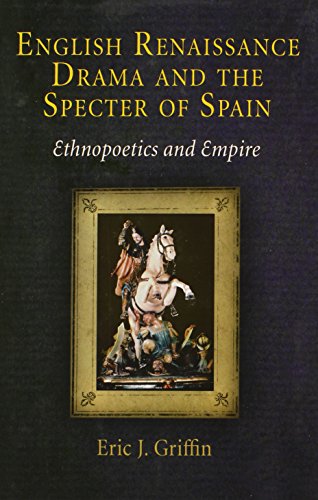

Most ebook files are in PDF format, so you can easily read them using various software such as Foxit Reader or directly on the Google Chrome browser.
Some ebook files are released by publishers in other formats such as .awz, .mobi, .epub, .fb2, etc. You may need to install specific software to read these formats on mobile/PC, such as Calibre.
Please read the tutorial at this link: https://ebookbell.com/faq
We offer FREE conversion to the popular formats you request; however, this may take some time. Therefore, right after payment, please email us, and we will try to provide the service as quickly as possible.
For some exceptional file formats or broken links (if any), please refrain from opening any disputes. Instead, email us first, and we will try to assist within a maximum of 6 hours.
EbookBell Team

4.1
90 reviewsThe specter of Spain rarely figures in our discussions of the drama that is often regarded as the crowning achievement of the English literary Renaissance. Yet dramatists such as Thomas Kyd, Christopher Marlowe, and William Shakespeare are exactly contemporary with England's protracted conflict with the Spanish Empire, a traditional ally turned archetypical adversary. Were these playwrights really so mute with respect to their nation's Spanish troubles? Or have we failed—for reasons cultural and institutional—to hear the Hispanophobic crosstalk that permeated the drama no less than England's other public discourses?
Imagining an early modern public sphere in which dramatists cross pens with proto-imperialists, Protestant polemicists, recusant apologists, and a Machiavellian network of propagandists that included high government officials as well as journeyman printers, Eric Griffin uncovers the rhetorical strategies through which the Hispanophobic perspectives that shaped the so-called Black Legend of Spanish Cruelty were written into English cultural memory. At the same time, he demonstrates that the English were as ready to invoke Spain in the spirit of envious emulation as to demonize the Spanish other as an ethnic agent of intolerance and oppression.
Interrogating the Whiggish orientation that has continued to view the English Renaissance through a haze of Anglo-American triumphalism, English Renaissance Drama and the Specter of Spain recovers the voices of key Spanish participants and the "Hispanized" Catholic resistance, revealing how England and Spain continued to draw upon shared traditions and cultural resources, even during the moments of their most storied confrontation.